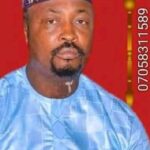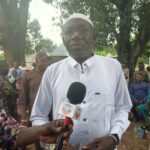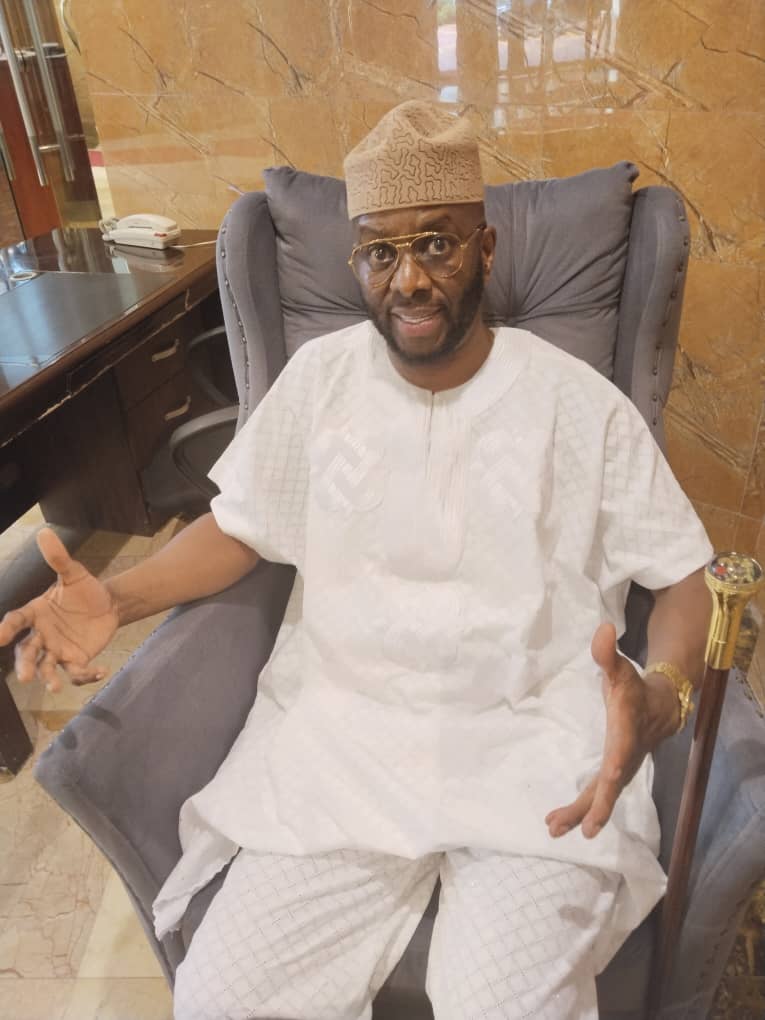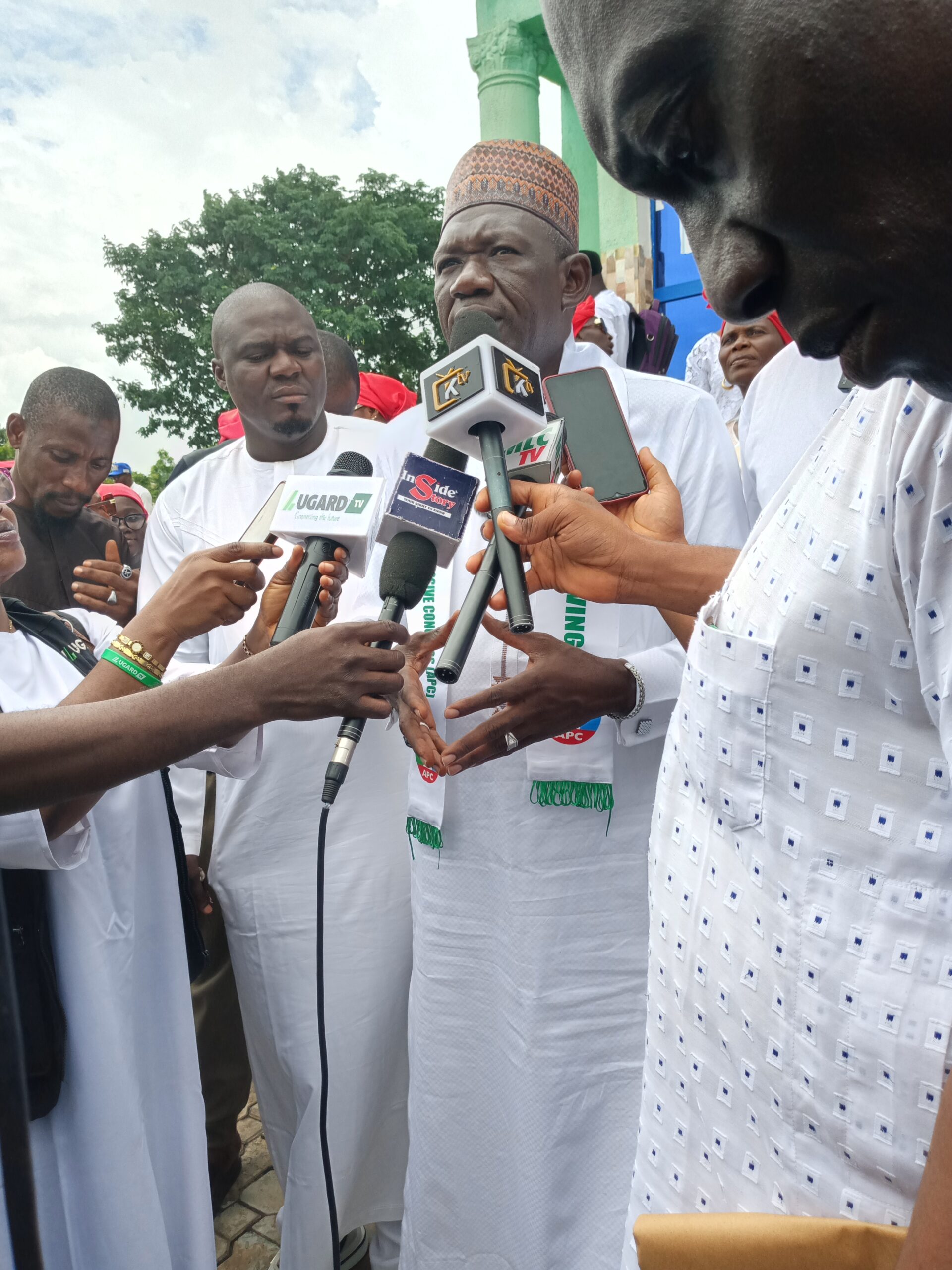
The race is about to begin. Men who want President Muhammadu Buhari’s job badly in May 2023 are crisscrossing the six geo-political zones, making friends, erecting sturdy coalitions and assembling crack teams of political operatives and campaign machinery.
The stage is set. And the grand race for Nigeria’s No.1 job, one of the most powerful offices in Africa, promises to be exciting.
By the last count, there were no less than 10 stalarts on the stump, jostling to be noticed in a race that is a clear 24 or so months away.
The Independent National Electoral Commission (INEC) on October 15, 2020 announced the date for the 2023 presidential election.
INEC chairman, Mahmood Yakubu, said the 2023 presidential election is scheduled to hold on February 18, 2023.
Yakubu made the disclosure at the inauguration of the House of Representatives Committee on Constitution Review.
He urged the National Assembly to work fast on the review exercise ahead of the polls.
Some of the presidential gladiators are now openly speaking about their preparations, their chances of winning, their hopes and dreams for the Aso Rock luxurious office, what they stand for ideologically, their personal qualities, as well as the style and type of presidency they hope to run.
Former Vice President Atiku Abubakar, a serial contestant for the position of President, is reported to have revived his campaign machinery. He may be contesting the Peoples’ Democratic Party (PDP) presidential ticket against younger opponents such as the Sokoto State Governor, Aminu Tambuwal, whose second term as governor ends in 2023; former Cross River State Governor, Donald Duke; and former Senate President, Bukola Saraki, among others.
Nigeria’s Vice President, Professor Yemi Osinbajo, will become the country’s President before the end of this year, 2021, according to Prophet Nigel Gaisie.
The popular Ghanaian cleric, founder of Prophetic Hill Chapel, made the proph¬ecy at his church during the December 31, 2020 watch night service, according to BBC and Ghanaian media.
He, however, did not say anything about the circumstances that would make Osinbajo President, and what would happen to his principal, President Muhammadu Buhari, whose second and final four-year term ends on May 29, 2023.
So, what sort of His Excellency would Asiwaju Bola Ahmed Tinubu be? Would President Yemi Osinbajo consolidate on the gains of President Buhari? How would President Atiku Abubakar handle a fragile economy? Or still, how would President Nyesom Wike, President Rotimi Amaechi or President Nasir el-Rufai resolve the lingering insecurity crisis facing Nigeria?
The presidential race has actually not come to that crucial lap yet. It is still a race inside the closet for a limited audience. It is a race run within party caucuses and traditional rulers’ palaces, monitored by a select press corps, whose job is to separate the unwieldy filed and set expectations and tone. Most aspirants have shown ingenuity and astuteness in close door manoeuvres while some are butter-fingers and lack political know-how. Most of them have survived the heated nocturnal warm-ups, but some are already buckling and gasping for breath. Most aspirants are scrambling in the far left and right of the field trying to sprint into the front row of the crowded track while others prefer for now, to keep a calculated and safe distance behind. The Nigerian presidential race, to be sure, is a marathon and it seems the swift ones run the risk of wasting their gas in the early rounds.
While a few of them, like Senator Ahmed Yarima, have openly declared their presidential ambition, others have been using allies to test the waters. Because of the uncertainty over zoning, some presidential hopefuls are being cautious, biding their time to see which way the pendulum would swing.
Members of the ruling All Progressives Congress (APC) are at daggers drawn over an agreement allegedly reached to rotate the presidential slot between the north and the south.
Former Governor of Kano State, Ibrahim Shekarau, said Nigeria’s next president should come from the Southern part of the country.
He said by 2023, President Muhammadu Buhari who is from the northern part of the country, would have been in power for eight years, and “common sense tells that we should look the other side, to the Southern part of Nigeria.”
Shekarau, who represents Kano Central District in the Senate, added, “There is common sense expectation of balancing and giving everybody a sense of belonging and fairness.”
He, however, said reliable and competent hands should be entrusted with the responsibility of leading Nigeria in 2023.
On his part, First Republic politician and former Special Adviser to late President Shehu Shagari on National Assembly Matters, Tanko Yakasai, completely dismissed the popular opinions making the round that the ruling APC will zone presidency to the South East in 2023.
Yakasai also said that Governor David Umahi led South East defectors have not invested anything in the APC as much as Asiwaju Tinubu and South West people who he said have spent all their times in the party for almost two terms.
He also contended that “There are a lot of people in the South East that are highly educated but when it comes to calculation, even the mathematicians among them, is found faulty politically.
According to him, “It’s a faulty arithmetic, anticipating Presidency to go to South East in 2023, adding, “You can’t harvest where did not sow. Opportunist never succeed in politics. In politics or any situation, if you’re called opportunist, it’s a very bad term. It’s not a good complement at all.”
In the months ahead, with some presidential contenders certain to drop out of the contest and some more aspirants sure to join the race, the picture may change and take a sharper perspective. Those who claimed there was an agreement on power shift are of the view that since President Buhari, a northerner, would round off his second term in 2023, power should shift to the south.
The big question is: Who will be the next president of Nigeria in 2023?
Zoning Principle
The recent defection of Governor David Umahi of Ebonyi State from the PDP to the APC has raised fresh concerns over who succeeds President Buhari in 2023 and indeed the zoning of presidential power in Nigeria.
While justifying his defection, Umahi had claimed the PDP was not planning to pick its 2023 presidential candidate from the South East, which has yet to produce a president since democracy was restored in the country in 1999.
Babatunde Fashola, Minister of Works and Housing, said in November 2020 that at the inception of the party eight years ago, there was an agreement that power should rotate between both regions and demanded that it should be respected.
He warned that it would be dangerous to abandon the agreement.
“The truth is that what makes an agreement spectacular is the honour in which it is made, not whether it is written.
“If it was written there would be no court cases of breach of contract because it is a document that is written and signed that goes to court. But the private agreement you make with your brother and sister should not be breached, it must be honoured.
“All parties are clubs where you write agreements just like a social club and we can decide that it is the youngest person who will be the chairman of the club or we can decide that it is the oldest person or the next female or the next male. That is the matter of agreement between people.”
A founding member of the APC, Osita Okechukwu, spoke in the same vein and noted that the “gentleman agreement” predated the birth of APC.
Okechukwu, a member of the manifesto committee of the defunct merger committee of APC, explained that at the commencement of the current political dispensation in 1999, the political class agreed that the presidential power should rotate between the North and the South.
“There is a convention. It is a convention. From 1999, the convention of zoning was adopted. It is not written in black and white. It is a convention which provides guidance in liberal democracies. So, nobody can come out and say there was no agreement,” he reportedly said last week.
But another founding member of the party and presidential aspirant, Ahmed Sani, disagrees.
“I don’t think there is anything like agreement,” Sani, a former governor of Zamfara State, said.
“You can ask Mr. President, he led the group. Asiwaju (Bola Tinubu) was there. I was part of it. There was no meeting I didn’t attend or any meeting that I attended that there was such agreement. Such agreement can’t be verbal, it has to be written. In any case, any agreement that is contrary to laws of this country is not an agreement. The constitution is very clear, the constitution of the polit-ical parties, the Electoral Act. We are in a democracy and democracy is governed by processes and procedures and by laws.”
Competence instead of Geography
Mamman Daura, a nephew of President Buhari, stirred controversy in August last year when he canvassed competence instead of geography as the deciding factor in the choice of Nigeria’s fu¬ture presidents.
Daura, allegedly a member of the president’s kitchen cabinet, argued in a media interview, that “This turn-by-turn, it was done once, it was done twice, and it was done thrice…It is better for this country to be one…It should be for the most competent and not for someone who comes from somewhere.”
Many perceived Daura’s suggestion as the thinking of the presidency.
For the critics, he was not merely flying a kite but was working in a subtle manner to ensure the retention of the presidential power in the north where Buhari hails from.
Edwin Clark, elder statesman, had asked Daura why he did not speak against zoning before his nephew was elected president.
But the presidency said Daura’s views were personal to him and did not, in any way, reflect that of either the president or his administration.
In a statement, Garba Shehu, presidential spokesman, said Daura is entitled to ex¬press his personal view on issues.
“We have received numerous requests for comments on the interview granted by Malam Mamman Daura, President Muhammadu Buhari’s nephew to the BBC Hausa Service,” Shehu said.
“It is important that we state from the onset that as mentioned by the interviewee, the views expressed were personal to him and did not, in any way, reflect that of either the President or his administration.
“At age 80, and having served as editor and managing director of one of this country’s most influential newspapers, the New Nigerian, certainly, Malam Mamman qualifies as an elder statesman with a national duty to hold perspectives and disseminate them as guaranteed under our constitution and laws of the land. He does not need the permission or clearance of anyone to exercise this right.
“In an attempt to circulate the content of the interview to a wider audience, the English translation clearly did no justice to the interview, which was granted in Hasa, and as a result, the context was mixed up and new meanings were introduced and/or not properly articulated.
“These issues remain at the heart of our evolving and young democracy, and as a veteran journalist, scholar and statesman, Malam Mamman has seen enough to add his voice to those of many other participants.”
However soon after, the Kaduna State Governor, Nasir El-Rufai, who is allegedly eyeing the nation’s number one political office, re-echoed Daura’s views.
He canvassed the abandonment of the zoning arrangements for political offices as adopted in the country.
The governor, a member of the APC, argued at a forum that the zoning process among political parties would not solve the economic problems facing the country and therefore “everyone should be given an equal opportunity” to run for office, and not based on ethnicity.
Presidential Gladiators
Irrespective of the contention over power sharing, some politicians drawn from the nation’s two major political parties, the APC and PDP, are already warming up to take a shot at the topmost political office in the land in 2023.
Among those believed to be positioning themselves for the APC ticket are a former Lagos governor, Bola Tinubu (South West), Governor Kayode Fayemi of Ekiti State (South West), Rotimi Amaechi, Minister of Transportation (South South), Governor David Umahi of Ebonyi State (South East) and ex-Zamfara governor, Ahmed Sani (North West). Those widely believed to be oiling their political machineries on the PDP platform include former Vice President Atiku Abubakar, Governor Nyesom Wike of Rivers State and Governor Aminu Tambuwal of Sokoto State.
Tinubu
Although the APC National Leader, Asiwaju Bola Tinubu, has not openly declared his intention to run for the 2023 presidency, but his allies, loyalists and supporters have commenced early campaigns for him to succeed President Buhari.
Tinubu has at every fora reiterated that the time is not yet ripe for 2023 electioneering. However, those around him have already started mobilizing.
Immediately after the 2019 elections, a group in Lagos, Tinubu 2023 Non-Negotiable (TNN), began actively capaigning for him nationwide.
About three weeks ago, a new group, South West Agenda (SWAGA), led by Senator Dayo Adeyeye, comprising of former lawmakers and other politicians, asked Tinubu to make a run for 2023.
Tinubu has also recently embarked on a national tour, which analysts say are surreptitious moves to sell himself to the people and invigorate his national appeal.
Also, a group of young Nigerian professionals recently unveiled a political movement in Abuja to work for the actualisation of Tinubu’s perceived presidential aspiration.
The movement known as Young Professionals for Tinubu 2023, with membership across the 36 states of the federation and the FCT, said it has been in existence for almost two years, noting that the occasion was to mark its formal inauguration.
The National Coordinator of the group, Mr. Ahmed Muhammed Ibrahim, noted that Tinubu’s leadership qualities and knack for development informed the group’s resolve to work for his emergence as the APC candidate, as well as his success in the 2023 presidential election.
Tinubu has easily dominated South West politics since 1999 and had been a thorn in the sides of the then ruling PDP.
But a coalition group of Youth in Katsina state named Movement of Amaechi For President 2023 (MARPS) Katsina State Chapter, recently said it has endorsed and supported Minister of Transportation and the former governor of Rivers State, Rotimi Amaechi, to succeed president Buhari.
This was contained in their statement issued on Monday December 28, 2020.
“It is time to start thinking of who will likely succeed president Buhari by 2023. We all know that the North has its turn with the incumbent president who is from the region. Now it’s time for the South. Among all the politicians from the South that are said to have shown interest in the race of becom¬ing number one citizen of the country, Amaechi is the most resourceful, capable and youngest. He is vibrant, modern and digital. He has belief in one Nigeria. He joined politics in the univer¬sity, he rose to the position of president of National Union of Rivers State Students,” Mannir Salisu Mohammed Publicity Secretary of the group said in a statement.
Amaechi
Recently, Amaechi, stressed the need for the APC to respect the gentleman agreement to zone the prdency to the South in 2023. This, pundits say, suggests he has ambitions for the seat.
Amaechi is one of the most visible ministers in Buhari’s government. He served as the Director-General of Buhari’s Campaign in 2015 and 2019.
He has experience as a former Speaker in Rivers State, a two-term governor, former chairman of the NGF and now a minister driving a critical ministry in the present government.
But there are odds stacked against him as he may have to battle former President Goodluck Jonathan for the soul of the South South.
He is also going to contend with the infighting in his home state, which has left the party deeply divided in recent times.
Although there is still a subsisting court judgement declaring Igo Aguma as APC Caretaker Committee Charman for Rivers State, the party’s national headquarters recognises Isaac Ogbobula as its caretaker chairman.
Aguma is sympathetic to the cause of Senator Magnus Abe while Ogbobula is said to be doing the bidding of Amaechi.
The resolution of this and similar conflicts, as well as the conduct of congresses, will certainly decide the fate of the party, at least in the South South geo-political zone where it currently does not control any of the six states.
While Amaechi has not also declared interest in the presidency, people around him say he has his eyes firmly fixed on the seat and he is not leaving anything to chance.
Fayemi
There is disquiet in the fold of the APC in Ekiti State following an endorsement of the state governor, Kayode Fayemi, for president in 2023.
Although the governor is yet to formally declare his intention to run for the office, his supporters and admirers have gone to town to drum up support for his ambition.
Only on December 19, 2020, the APC caretaker committee led by its state chairperson, Paul Omotoso, openly endorsed Fayemi for the presidency in 2023.
But an opposing group within the party, and under the platform of APC Stakeholders Forum, rejected the call for the governor to run, arguing that the governor could not benefit from a zoning arrangement he is well known to be opposed to.
Omotoso, while speaking at an event organised by Olusegun Osinkolu in Ayede Ekiti, Oye council area of the state, said the party would drag Fayemi into the presidential battle forcefully, if he refuses to join the race willingly.
“We can say boldly that APC will win the Ekiti governorship election in 2022, because Governor Fayemi has done creditably well and we don’t want another reckless party that will destroy Ekiti again,” Omotoso, represented by the APC caretaker Publicity Secretary, Ade Ajayi, said.
“On the 2023 presidency, time has come for the President to come from Ekiti. That is why we are pleading with you to support Governor Fayemi.
“Though Governor Fayemi has never said he wanted to contest, we will force him to plunge into the race, because of his competence, dedication and loyalty to APC.”
However, a statement by the secretary of the stakeholders’ forum, Bamigboye Adegoroye, in Ado Eki¬ti denounced Omotoso’s claim that all the stakeholders had resolved to back Fayemi’s presidential ambition.
“The attention of the Ekiti State Stakeholders Forum has been drawn to a statement credited to Mr. Paul Omotoso on the idea that APC, Ekiti State chapter has backed Dr. Kayode Fayemi for 2023 Presidency,” the statement said.
“We want to state unequivocally that Hon. Ade Ajayi who represented Mr. Omotoso, barely expressed a personal view at a social event, where the convener was absent or at best, the views of a small clique in the party.
“The leaders of APC in Ekiti State are unaware of the idea. Again, we note that Hon. Ade Ajayi’s boss does not even believe that the position should be zoned to the South West as expressed on the national platform recently.
“All the states in the south of Nigeria deserve a shot at the Presidency if it is agreed upon by the national leaders of our party.
“Ekiti State Stakeholders Forum along with other eminent Yoruba leaders will canvas for the opportunity to produce the next President in 2023 from our zone.
“Adoption of an authentic, qualified, well known, humane and experienced Yoruba man is our goal, and we will play our part in accomplishing that task.”
Yarima
He was governor of Zamfara State from 1999 to 2007. He represented Zamfara West in the National Assembly and equally served as Deputy Minority Leader in the Senate. He is currently a member of the ruling APC.
Yarima is the only person to have declared his ambition to be president in 2023.
He had attempted before in 2007 but later stepped aside for President Buhari.
Recently, he told reporters in his Abuja residence that he would contest the 2023 presidency, insisting that the APC leaders did not reach any agreement before the 2015 general elections that there would be power rotation to the South at the expiration of President Buhari’s tenure in 2023.
If there is a zoning arrangement, it would most likely scuttle Yarima’s ambition, but the former governor seems determined to plod through, arguing that zoning was alien to the 1999 Constitution, the Electoral Act 2010 (as amended) and the APC’s Constitution.
He insists that no one could force him out of the race on grounds of zoning.
Umahi
Governor David Umahi of Ebonyi State is also one of the politicians from the South East believed to be interested in Buhari’s plum seat in 2023.
Umahi, who has been a top chieftain of the PDP for many years, recently defected to the ruling APC in a strategic move to position him for the 2023 presidency.
Although Umahi has said that his defection has nothing to do with any presidential ambition in 2023, pundits and political watchers are of the view that the Ebonyi governor was being economical with the truth.
In the fullness of time, it would be clear whether Umahi will throw his hat in the ring for the presidency or not
Abubakar
He was Vice President from 1999 to 2007 during the reign of President Olusegun Obasanjo.
He was the PDP presidential candidate in the 2019 general elections but lost to President Buhari.
Atiku, a business mogul and political heavyweight, is thought to have a deep pocket with political machinery and structures spread across the country.
He ran for governor of Adamawa State first in 1990 and again in 1998 (when he won, before being picked as Vice Presidential candidate) and was a presidential candidate of the defunct Action Congress (AC) in the 2007 presidential elections.
He contested the PDP presidential ticket before the 2011 general elections but did not make it.
In 2014, he joined the APC ahead of the 2015 presidential elections and contested the presidential primaries but lost to President Buhari.
He later supported President Buhari’s run to Aso Rock. After being sidelined by the APC, he re-turned to the PDP in 2017 and secured the party’s presidential ticket for the 2019 general elections.
Though Atiku has not openly declared his intention to contest in 2023, indications show that he would.
He has been a constant critic of the Buhari administration and his son, Adamu Atiku, had in June 2020, said that his father would contest again in 2023.
Adamu, who spoke at the presentation of his scorecard as Commissioner for Works and Energy in Adamawa State, said, “I don’t see anything wrong with my father contesting for the presidency.
“In 2023, my father will be aspiring to the Number One office in the land because he has been an astute, strategic, master politician for almost four decades,” he said.
Kwankwaso
Pundits believe Senator Rabiu Musa Kwankwaso, a two-term former governor of Kano State, is likely to pursue his presidential ambition again in 2023.
Though the former Minister of Defence has not declared interest yet, he has, at different times, sought the presidential ticket of both the APC and the PDP but lost to President Buhari and former Vice President Atiku respectively.
Kwankwaso, who enjoys widespread support in Kano, is the leader of the Kwankwasiyya political movement.
He was in the Social Democratic Party (SDP) in the 1990s, rubbing shoulders with the likes of the late General Shehu Yar’adua, his former boss Senator Magaji Abdullahi, Babagana Kingibe, Atiku Abubakar, Bola Tinubu, late Tony Anenih, late Chuba Okadigbo, Abdullahi Aliyu Sumaila and late Lamidi Adedibu amongst others.
Tambuwal
The current Sokoto State governor clinched the governorship seat in 2015 using the APC ticket.
He was a founding member of the APC, after he and some other governors defected from the PDP and helped form the coalition that became the APC.
He later returned to the PDP, vied for the presidential ticket in 2019 and after losing that to Atiku Abubakar, secured a second term as governor of Sokoto State on the party’s ticket.
Tambuwal served as the 10th speaker of the House of Representatives and represented the Tambuwal/Kebbe Federal Constituency of Sokoto State at the National Assembly.
He is currently the Chairman of the PDP Governors Forum (PD¬PGF).
The governor has started consulting some notable political leaders across the six geo-polit¬ical zones over his presidential ambition.
On August 22, 2020, Tambuwal held a closed-door meeting with a former President, Chief Olusegun Obasanjo in Abeokuta, Ogun State at the Olusegun Obasanjo Presidential Library Pent House.
The Special Assistant on Media to the former President, Kehinde Akinyemi, confirmed the closed-door meeting in a statement he issued the following day.
The statement titled “Obasanjo still relevant for consultations on issues of governance and chal-lenges” described the visit by Tambuwal as an unscheduled one.
The statement also quoted the governor as saying he visited Obasanjo for consultation on gov-ernance and other issues.
The governor also consulted former Senate President David Mark, former Defence Minister, Gen TY Danjuma (retd) and many other prominent politicians.
Pundits say Tambuwal is counting on his age, political experience in the legislative and executive arms of governments, his clout, and political pedigree to become president.
Will The Parties Respect Zoning?
The APC said it has no problem with zoning of the presidency but it is yet to take decision on where to zone positions to.
“We don’t have any problem about zoning. At the appropriate time, stakeholders in the party will meet and decide on the issue of zoning. It is not a one man show,” Yekini Nabena, deputy spokesperson of the party reportedly said.
It is not unlikely that the party would resort to zoning of the presidency if the provision of its constitution is anything to go by.
Article 20 (iv) (d) of the party’s constitution states that “…….. The National Working Committee shall, subject to approval of the National Executive Committee, make rules and regulations for the nomination of candidates through primary elections. All such rule, regulations and guidelines shall take into consideration and uphold the principle of federal character, gender balance, geo-political spread and rotation of offices, to as much as possible, ensure balance within the constituency covered.”
On its part, the PDP does not want to be drawn into the issue of zoning now, according to its spokesperson, Kola Ologbondiyan.
“Our party is yet to reach a decision on zoning. It is not about maturity or pre-maturity,” Ologbondiyan explained.
But beyond all these, a few other factors may determine where the presidency would be zoned to by the parties ahead of the 2023 poll.
To be sure, if these factor come into play in ruling APC, the South East quest may become a mirage.
At present, the APC controls five out of the six states in the South West. This contrasts with the situation in the South East where the party is in charge of only two states, namely Imo and Ebonyi.
In fact, watchers of the nation’s democracy believe the two states are still dominated by the PDP despite their governors’ membership of the APC.
In the 2019 presidential election, APC garnered a total of 2,036,450 in the South West compared to a paltry 403,968 in the South East.
The PDP secured a total of 1,776,670 from the South West and 1,693,579 from the South East.
Besides, the South West more than the South East, has more influential people in the APC.
What will produce the next president, may not be the candidate and his credible programmes but the ability and the cleverness of the various geo-political groups to out-manoeuvre one another. The influence of these various power blocs is tremendous and any aspirant that ignores this zoning development may have to do so at great peril.
The name of the game is zoning and it spots a code called money. But the game promises to be exciting in all respects. There is great expectation as there is great uncertainty. Today’s front runners for example may not be tomorrow’s front runners. The race may, in fact, not belong to the swiftest. The chances are that more dark horses may emerge and compromise candidates, those not featuring in the current political calculations, may win the day.
But as they say, let’s keep our fingers crossed.












